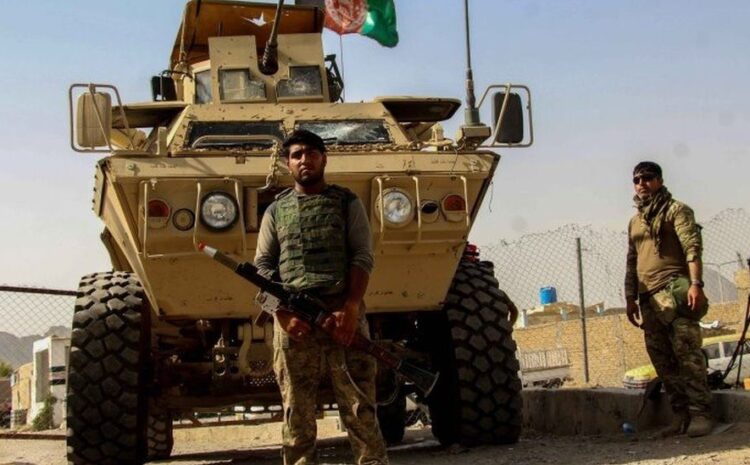
IMAGE COPYRIGHT EPA image caption Clashes between Afghan security forces and the Taliban have intensified since US troops started withdrawing
The Taliban have proposed a three-month ceasefire in Afghanistan in return for the release of 7,000 captured fighters, a government official said.
Nader Nadery, an Afghan government negotiator, described the proposal as a “big demand”.
The government has so far not said how it will react.
Clashes between the government and the Taliban have intensified since US troops began to withdraw from the country.
The Taliban recently claimed their fighters had retaken 85% of territory in Afghanistan – a figure impossible to independently verify and disputed by the government.
Other estimates say the Taliban controls more than a third of Afghanistan’s 400 districts.
Last year 5,000 Taliban prisoners were released and it is believed that many of them returned to the battlefield, worsening violence in the country, says BBC correspondent Lyse Doucet.
On Thursday, Afghan forces said they had recaptured a border crossing with Pakistan that had been taken by the Taliban. The insurgents deny having lost control of the border post.
Afghan forces have been struggling to halt the Taliban’s advance through the country, which has sped up since a 2020 deal struck with former US President Donald Trump’s administration.
Under the terms of that deal, the US and its Nato allies agreed to withdraw all troops in return for a commitment by the militants not to allow any extremist group to operate in the areas they control.
Many fear Afghan security forces will collapse completely under the onslaught, with former US President George W Bush – who was behind the decision to send US troops to the country in 2001 – warning that the consequences of the US withdrawal were likely to be “unbelievably bad”.
